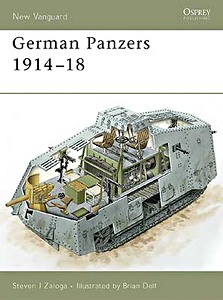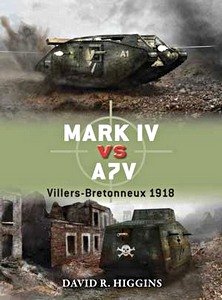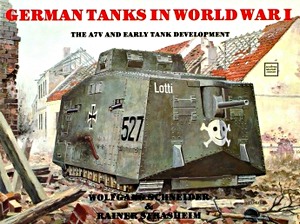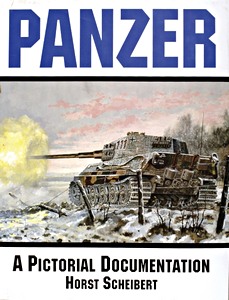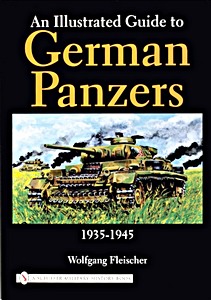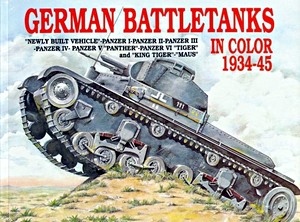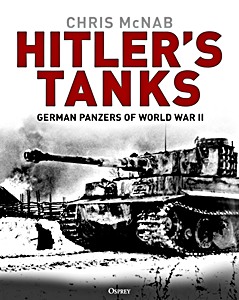Le char allemand A7V
L'A7V est le seul char allemand de la Première Guerre mondiale, ce qui s'explique par le manque d'intérêt du général Ludendorff pour les blindés. Il n'a été construit qu'à une vingtaine d'exemplaires, ce qui n'a pas empêché son emploi dans toutes les grandes batailles de 1918, à commencer par l'opération Michael, le 21 mars. Son petit nombre a empêché qu'il puisse jouer un véritable rôle tactique sur le terrain.
Ce livret de 32 pages, illustré d'excellentes photographies d'époque et d'illustrations en couleur d'Éric Schwartz fait partie d'une série de monographies parues chez Ysec Éditions sur les armes et les véhicules de la Grande Guerre.
Caractéristiques
| Auteur : | Yves Buffetaut |
|---|---|
| Présentation : | 32 pages, 24 x 16 x 0.3 cm, broché |
| Illustration : | abondamment illustré avec des photos en N&B et couleurs |
| Langue : | français |
| Editeur : | Ysec Editions (F, 2018) |
| ISBN : | 9782846733014 |

Le char allemand A7V
Langue : français
Voir prix, disponibilité et avis sur Amazon
Acheter sur Amazon FRVoir sur Amazon BE

